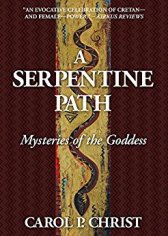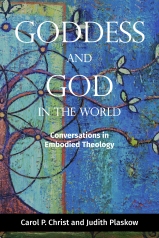 While waiting to get off a plane last week, I overheard a serious young woman explaining a recent theological insight to her half-asleep and equally young husband. “You see,” she began, “what I just learned is that though He owes us nothing and does not reward us for our good deeds, nonetheless, He takes pleasure in them.”
While waiting to get off a plane last week, I overheard a serious young woman explaining a recent theological insight to her half-asleep and equally young husband. “You see,” she began, “what I just learned is that though He owes us nothing and does not reward us for our good deeds, nonetheless, He takes pleasure in them.”
As the flight was from Mytilene, Lesbos to Athens, I guessed that the young couple had come from the United States to my island to assist the refugees. I imagined that the young woman wanted to do good deeds, to help others, and to please her God. At the same time, she seemed to be struggling with Lutheran, Calvinist, or Anabaptist doctrines of justification by faith alone and predestination. I suspected that she had been told she must accept the teachings of church authorities on faith as the correct interpretation of the word of God. Her new insight was attributed to someone else.
I tried for a moment to put myself in her shoes, wondering what it would be like to believe in a God who “owes us nothing.” This of course is the radical theology of the Reformation. The reformers rejected the doctrine known as “prevenient grace,” which says that God infuses the world with grace because He created it. No, the Protestants insisted, the created world and humanity as part of it, fall so short of the divine goodness and majesty that God in His wisdom not only has the right to condemn every last one of us to hell for our sins, but even to predestine us to heaven or hell before we have a chance to do good or evil.
Reflecting on the young woman’s theology, I recalled my thought process when I recently discovered that I am descended from Priscilla Mullins and John Alden who came to America on the Mayflower, survived the first winter when half of their number died, and went on to “increase and multiply.” To be a Mayflower descendant can be viewed as an honorable legacy (or not), but it does not make one part of a select group. Priscilla and John’s first daughter, Elizabeth Alden Pabodie, from whom I am descended, had an estimated 82 grandchildren and 556 great-grandchildren when she died in her early nineties. There may be ten million descendants of the Mayflower living today. But I digress.
When I discovered that I had Pilgrim ancestors, I spent a day or two trying to figure out if the Pilgrims held any theological viewpoints I would want to claim as antecedent to my own. Priscilla’s parents may have been Separatists who felt it necessary to “separate” from the doctrines and practices of the Anglican church of their time. In contrast, the Puritans who followed them to America hoped to “purify” the Anglican church without separating from it. I could identify with the Pilgrims’ decision to separate from the church of their time. Beyond that I could not go. The Pilgrims and the Puritans shared a belief in the God described by the young woman on the plane: the God who owes us nothing.
Last week on FAR I wrote that the doctrine of divine omnipotence can be viewed as the ultimate homage to male dominance as control. I quoted philosopher Charles Hartshorne who wrote that theologians accepted the “tyrant” ideal of power, failing to recognize that it flies in the face of everything we know about love, justice, and moral values.
In developing their doctrines of justification by faith alone and predestination, Luther and Calvin elevated concern for divine power as omnipotent over concern for divine love as omnipresent. Their theologies informed the young woman’s view that “He owes us nothing.” What horrible theology! I wish I had been able to explain to the young woman that such a theology is massively wrong.
Surely a God understood as Creator and Father of the world owes it something! The idea that a human father might create a child and then conclude “I owe it nothing” is repugnant to most of us and is not condoned by our legal systems. Why then do we insist that it is perfectly fine for a Divine Creator and Father to think and behave in such a fashion?
In her struggles with the Calvinist theology she was taught, Mary Baker Eddy concluded that God must be at least as loving and kind as her own mother. The idea that “He” is not, is (to my mind) quite simply, bad theology. Yet sadly, bad theology continues to trouble the hearts and minds of many.
* * *
Carol’s new book written with Judith Plaskow, is Goddess and God in the World: Conversations in Embodied Theology.
FAR Press recently released A Serpentine Path: Mysteries of the Goddess.
Join Carol on the life-transforming spring Goddess Pilgrimage to Crete. Space available!




As I was reading your essay Carol I found myself reflecting on how far I have come from bad theology by your standards. I simply cannot imagine any “Him” dominating any living creature on this planet including humans. “He” is simply not real.
And yet I still fall into the patriarchal pit with my thinking. Each time I become aware of what has happened, I feel not only discouraged, but have difficulty getting myself together in order to pull myself out. Is it my imagination or are the roots of patriarchy actually increasing their hold on us?
LikeLiked by 1 person
Bad and sad indeed. Growing up as a minister’s daughter in the Episcopal Church I always had a bad impression of God the Father to whom we “acknowledged and bewailed out manifold sins and wickedness which we from time to time most grievously have committed provoking most justly they wrath and indignation against us…” One of my earliest memories might be called theological. I have probably written about it here–my plan (at the tender age of three) to commit deicide by crushing the first two members of the trinity under a boulder. I suppose I didn’t know what to do about the Holy Ghost–who, if a ghost, was dead already? And perhaps friendly, like Caspar? In any case, I am sorry to hear that there are still people trying to please this implacable god.
LikeLiked by 1 person
I grew up in St. Louis in what was then called the Emmanual and Reformed church. Big-time Calvinist at the time, though it’s now part of what I think is a mainstream institution, the United Church of Christ. Though my family were not regular church goers (Christmas Eve and Easter), they made sure I got sent to confirmation classes, in which I asked too many questions; my mother got a phone call from the minister: “Shut her up.”
Carol, you’re right–it’s very bad and very sad, not a friendly theology. Thanks as usual for your insights.
LikeLiked by 1 person
This is probably true of many Americans also, that is, my background is all mixed up. My mother was part German and part native American. My Dad was the son of English immigrants. As a child I was sent to a Presbyterian church. But as an adult I am a Zen-Taoist, by my own choice, and absolutely love the path dearly. I also enjoy all forms of eco-spirituality, including a huge devotion to Emily Dickinson’s poetry. I linked my name here to a website I have online celebrating some of Dickinson’s work — hope you enjoy it!
His Feet are shod with Gauze —
His Helmet, is of Gold,
His Breast, a Single Onyx
With Chrysophrase, inlaid.
His Labor is a Chant —
His Idleness — a Tune —
Oh, for a Bee’s experience
Of Clovers, and of Noon!
LikeLike
I have no interest in a God from whom I have to ask forgiveness when ostensibly that same God made me the way I am.
LikeLiked by 3 people
After growing up in a very liberal church in which God was described as loving and non-judgmental in the Midwest, i have found it fascinating, and sometimes distressing, to live for the past 30 years in New England, where I see cultural vestiges of the harsh and anti-human Calvinism of the Puritans that are still doing damage to individuals and communities. It takes a long time for a culture to rid itself of that guilt and fear. At the same time, I wonder if your ancestor, Elizabeth Alden Pabodie might also be the ancestor of the famously feminist and socially progressive 19th century Peabody sisters, who represent the other more compassionate and forward-looking strain of New England thought?
LikeLiked by 1 person
A few google searches later. Yes, the Peabody sisters are descended from Elizabeth Alden, but from a different one of her 13 children, so I suppose I am distant cousins several times removed from the sisters. I don”t know anything about them, so thanks for telling me of them.
LikeLiked by 1 person
Like you I was taught about the love of God with very little of the judgment. Siggghhhhh.
LikeLiked by 1 person
“Will any one of you who has a servant plowing or keeping sheep say to him when he has come in from the field, ‘Come at once and recline at table’? Will he not rather say to him, ‘Prepare supper for me, and dress properly, and serve me while I eat and drink, and afterward you will eat and drink’? Does he thank the servant because he did what was commanded? So you also, when you have done all that you were commanded, say, ‘We are unworthy servants; we have only done what was our duty.'” Luke 17:7-19. God speaks in His word – and because of the great cost of the atonement of His Son Jesus … God the Father owes us nothing … He paid it all.
LikeLiked by 1 person
That’s exactly the kind of theology I am criticizing, though I was not discussing the atonement specifically.
LikeLike
Perhaps I, a man, shouldn’t interject my opinion here. Nevertheless, I agree with Cynthia, and applaud her courage. It’s okay to get angry at the God of Abraham, Isaac, and Jacob. I do it all of the time. I curse, jump up and down, sulk, and demand answers! He doesn’t answer (speak from a burning bush). But he does speak, usually the next day, in other ways.
I’m okay with people who want God to conform to their desires. But I see a great peace and joy in people who are willing to trust The Lord and conform to His desires. These people are even willing to be beheaded rather than deny His sovereignty. Crazy, right?
LikeLike